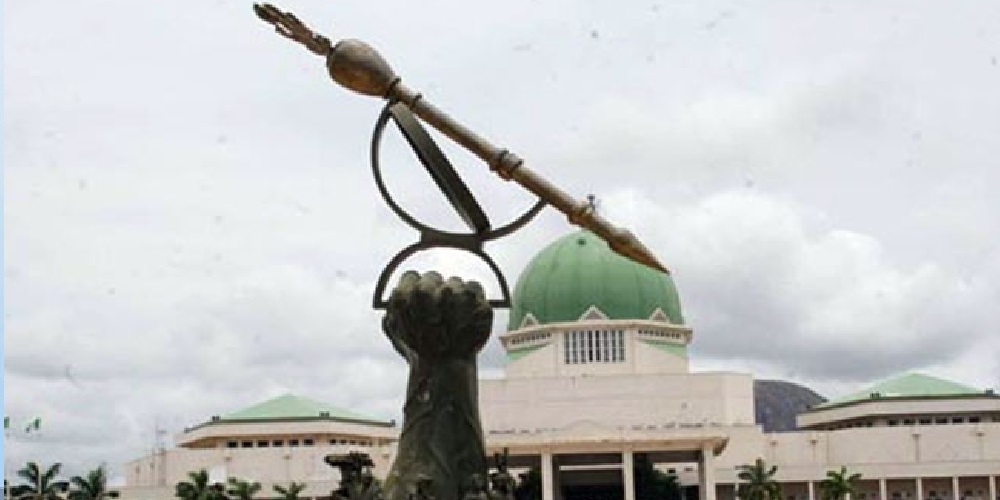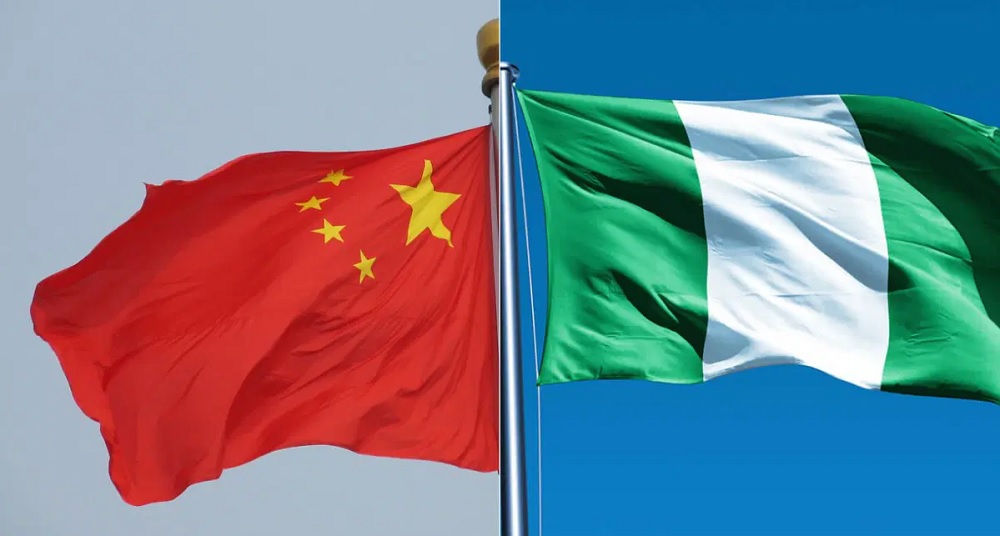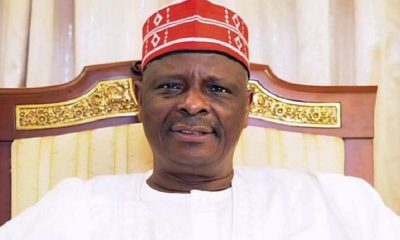News
Nigeria’s average GDP growth rate remained negative since 2014 – Okonjo-Iweala

The Director General of the World Trade Organization (WTO), Ngozi Okonjo-Iweala, has said that Nigeria’s Gross Domestic Product (GDP) growth rate on average has been steadily declining since 2014, signalling a downturn in the economic well-being of the average Nigerian.
Okonjo-Iweala, speaking at the annual General Conference of the Nigerian Bar Association (NBA) on Sunday, noted that the country’s economic fortunes experienced a reversal following the decade between 2000 and 2014, during which the average GDP growth rate was approximately 3.8%.
According to her, this steadily GDP growth outpaced the nation’s population growth, which was only around 2.6% annually.
However, the WTO Boss noted that since 2014, the situation has reversed, with GDP showing a negative growth rate of 0.9%, as the government has been unable to sustain the positive growth achieved by previous administrations.
“Many of the big problems the NBA is grappling with today has its root in Nigeria’s failure to sustain rate of economic growth and development that consistently outpaced the growth of our population.
“We have had episodes of reforms and faster economic growth that was not merely a function of the price of oil. But we have been unable to consolidate and build on them and millions of our compatriots have paid the price in terms of diminished job prospects and human well-being.
“For example, in the decade between 2000 and 2014, we had an average GDP growth rate of 3.8% well above our population growth rate of 2.6% per annum, meaning that people were on average truly improving their standard of living.
“During the following decade, average annual GDP per capita has been negative around minus 0.9% meaning people were worse off because we were not able to sustain prior positive growth momentum,” Okonjo-Iweala added.
Nigeria must sustain good economic policies
Speaking further, Okonjo-Iweala said the country needs to sustain good economic policies irrespective of the administration or political party in power in order to foster development in the country.
The former Finance Minister said policy inconsistencies have accounted for the reversal in the fortune of the nation’s economic development.
Furthermore, she advocated for a social contract between the government and the people which will go beyond the political party in power.
According to her, this social contract must be generally accepted on what economic policies should be followed regardless of who is in power.
“Maintaining good economic and social policies; maintaining policy consistency and adding more reforms on top of that will lead us along the path of good progress that we all desire,” she added.
What you should know
Nigeria’s Gross Domestic Product (GDP) growth declined to 2.98%, lower than the rate recorded in the fourth quarter of 2023 which was 3.46%, according to a report from the National Bureau of Statistics (NBS).
However, the GDP growth rate in the quarter is higher than the figure recorded in the corresponding quarter of 2023 which was 2.31%.
GDP measures the economic activities of a country.
In the past decades, Nigeria’s economic growth has been moderate as a result of low exports, a reduction in the sales of oil which accounts for about 90% of our revenue as well as other economic challenges in the country.
Meanwhile, President Bola Tinubu has continuously said he would increase Nigeria’s GDP to a $1 trillion economy, but many analysts believe such a goal may not the feasible amid growing concerns of high inflation, low employment rate as well and rising national debt.
News
Trouble brewio as Trump’s supporters move against Pope Leo, give reason

Catholicism has rarely been more prominent in US politics as the Trump administration openly embraces advisers and officials who proudly say faith has shaped their politics.
But any jubilation on the American Make America Great Again right about the new Pope this week quickly dissipated as key voices from Donald Trump’s Maga movement came to a disappointed conclusion: the first American Pope does not appear to be “America first”.
Little is known about the political leanings of Pope Leo XIV, born Robert Francis Prevost in Chicago.
He has voiced concerns for the poor and immigrants, chosen a name that may reference more liberal church leadership, and he appears to have both supported the liberal-leaning Pope Francis and criticised the US president’s policies on social media.
But the president so far has said only that Leo’s election was a “great honour” for the US. Still, some of Trump’s most prominent supporters were quick to attack Pope Leo, lambasting him as a possible challenge to Trump and on the perception that he will follow Pope Francis in areas like immigration.
“I mean it’s kind of jaw-dropping,” Trump’s former chief strategist Steve Bannon told the BBC on Friday, speaking of Leo’s election.
“It is shocking to me that a guy could be selected to be the Pope that had had the Twitter feed and the statements he’s had against American senior politicians,” said Bannon, a hard-right Trump loyalist, practising Catholic and former altar boy.
And he predicted that there’s “definitely going to be friction” between Leo and Trump.
The Pope’s brother, John Prevost, told The New York Times that he thinks his brother would voice his disagreements with the president.
“I know he’s not happy with what’s going on with immigration,” he said. “I know that for a fact. How far he’ll go with it is only one’s guess, but he won’t just sit back. I don’t think he’ll be the silent one.”
Recent survey data shows that about 20% of Americans identify as Catholic, according to the non-partisan Pew Research Center.
About 53% identify with or lean towards the Republican Party, though there’s plenty of nuance, too: America’s two Catholic presidents, John F Kennedy and Joe Biden, were both Democrats. And nearly two-thirds of US Catholics believe abortion should be legal in all or most circumstances – a departure from the Church’s current stance.
US Catholics also broadly supported Pope Francis: 78% of those surveyed in February viewed him favorably, including a majority of Catholic Republicans.
A number of Catholics In the new Pope’s home city of Chicago, on Thursday, aired disappointment with President Trump and said they hoped Pope Leo XIV would follow the path of his predecessor.
“We hope he’ll continue with Francis’s agenda going forward,” said Rick Stevens, a Catholic deacon from New Jersey who happened to be visiting Chicago when he heard the news.
The US Conference of Catholic Bishops, which leads and coordinates US Catholic activities, celebrated Pope Leo’s election and the message it sends.
“Certainly, we rejoice that a son of this nation has been chosen by the cardinals, but we recognise that he now belongs to all Catholics and to all people of good will,” the conference said in a statement. “His words advocating peace, unity, and missionary activity already indicate a path forward.”
Though Maga supporters represent a small subset of US Catholics, it’s one with outsized access to conservative media and Trump’s ear.
On Bannon’s War Room podcast – known for its hard-right, pro-Trump bent – one guest after another heaped criticism on the new Pope.
“This guy has been massively embraced by the liberals and the progressives,” said Ben Harnwell, a journalist who led Bannon’s efforts to establish what he calls a “gladiator school” for the “Judeo-Christian West” outside of Rome.
“He is one of their own… he has [Pope] Francis’s DNA in him,” Harnwell said.
Jack Posobiec, another Maga commentator dialing in from Rome, was blunt: “This choice of the American cardinal was done as a response, as a message to President Trump.”
The full picture of what led to Pope Leo’s selection on Thursday is still emerging and church decisions don’t map neatly onto US politics. Still, watchers around the world have pored over Pope Leo’s social media profiles in search of clues about his leanings and beliefs.
An X account under his name, with tweets going as far back as 2015, shares links to criticism of Trump’s approach to immigration and hints at other political views, such as stricter gun control.
In February, the account sharply rebuked the US vice-president by posting a link to an opinion piece titled “JD Vance is wrong: Jesus doesn’t ask us to rank our love for others”.
The account also posted a link to a letter from Pope Francis after he clashed with Vance over church doctrine and immigration. Vance – a Catholic convert – had given an interview in defence of the Trump administration’s immigration policies.
Vance has routinely invoked his faith in defense of the administration, particularly immigration policies, which the White House has said put “America first”.
“There is a Christian concept that you love your family and then you love your neighbour, and then you love your community, and then you love your fellow citizens, and then after that, prioritise the rest of the world. A lot of the far left has completely inverted that,” Vance told Fox News.
But US Democrats were not spared either on the account, which has more than a decade of posts. They appear to support Catholic employers who refuse to pay for contraceptives via employee health plans, and following the 2016 US presidential election, one post links to an article accusing Democrat Hillary Clinton of ignoring pro-life Catholic voters.
The BBC asked the Vatican to confirm the account was Leo’s, but did not receive a response.
Vice-President Vance told conservative broadcaster Hugh Hewitt on Friday: “I try not to play the politicisation of the Pope game.
“I’m sure he’s going to say a lot of things that I love. I’m sure he’ll say some things that I disagree with, but I’ll continue to pray for him and the Church despite it all and through it all, and that’ll be the way that I handle it.”
The new Pope’s LGBTQ views are also unclear, but some groups, including the conservative College of Cardinals, believe he may be less supportive than Pope Francis.
Matt Walsh, a commentator with the conservative Daily Wire, wrote: “There are some good signs and bad signs with this new Pope. I want to see what he actually does with his papacy before I pass any kind of judgment.”
But some of the most dedicated Maga supporters already have made up their minds.
Laura Loomer, a far-right influencer who has Trump’s ear, swaying the president on top personnel decisions, called the new Pope “anti-Trump, anti-Maga, pro-open Borders, and a total Marxist like Pope Francis”.
Bannon, who had suggested Leo as a dark horse for the papacy, predicted tensions between the White House and Vatican – and said they could even tear apart American Catholics.
“Remember, President Trump was not shy about taking a shot at Pope Francis,” he said.
“So if this Pope – which he will do – tries to come between President Trump and his implementation of the mass deportation programme, I would stand by.” BBC
News
Digital Shift in National Assembly No Longer Optional – CNA Ogunlana

By Gloria Ikibah
The Clerk to the National Assembly, Kamoru Ogunlana, has stressed the urgent need for the Nigerian Parliament to adopt digital technology, describing it as a necessity in today’s world rather than a choice.
Ogunlana made the remark during his opening address at a three-day retreat organised by the National Assembly in partnership with the Policy and Legal Advocacy Centre (PLAC). The event, which began on Friday, was supported by the UK Foreign, Commonwealth and Development Office (FCDO), and held under the theme “Building an Accountable, Transparent and Resilient Parliament: The Role of the National Assembly Top Management.”
According to him, “the use of technology in the Nigerian Parliament is not an option but a necessity,” especially as legislative processes around the world are becoming increasingly digital.
He pointed out that the retreat’s theme directly addresses the ongoing shifts and demands within the National Assembly, offering a critical moment to rethink approaches, plan strategically, and implement meaningful reforms.
“This presents a vital opportunity to reflect, strategize, and lay actionable plans that will shape the future of the National Assembly Service,” Ogunlana stated.
News
China Responds to AFN Claims Over Visa Delays for World Relays in Guangzhou

By Gloria Ikibah
The Embassy of China in Nigeria has responded to reports that Nigerian athletes withdrew from the 2025 World Athletics Relays in Guangzhou due to visa delays allegedly caused by Chinese authorities.
In a statement issued by the embassy, the claim by the Athletics Federation of Nigeria (AFN) was described as “clearly inconsistent with the facts.”
According to the embassy, “On April 24, the Embassy received a letter from the National Sports Commission of Nigeria (dated April 22) requesting assistance in processing visas for Nigerian athletes to participate in the event in China.”
The embassy explained that it responded promptly to the request: “The Embassy immediately communicated with the Commission and guided it to prepare the relevant materials so as to expedite visa application. On May 6, China Visa Application Centre received the relevant application materials submitted by the Nigerian athletes. The Embassy immediately activated the expedited procedure, provided the utmost assistance to the Nigerian applicants, and completed the visa issuance on May 8.”
Reaffirming its commitment to Nigeria-China relations, the embassy added, “The Embassy of China in Nigeria has always actively supported people-to-people and sports cooperation between the two countries, repeatedly expressed its welcome for Nigerian athletes to participate in events in China, and consistently assisted Nigerian citizens in visa applications in an efficient and professional manner.”
The embassy also stressed the importance of proper procedure in visa matters: “It should be noted as well that visa issuance is a matter of national sovereignty, and all foreign embassies require applicants to provide the corresponding documents and materials, as well as allow sufficient time for the application process.”
Expressing regret over the athletes’ inability to attend, the embassy stated, “We regret that the Nigerian athletes were unable to participate in the event in China this time, but the statement issued by the AFN is clearly inconsistent with the facts. The Embassy of China in Nigeria remains committed to promoting friendly exchanges between the Chinese and Nigerian peoples and stands ready to continue providing support and assistance for exchanges and cooperation in various fields, including sports.”
-

 News13 hours ago
News13 hours agoTInubu admits taking tough decisions to enable Nigeria grow
-

 Education10 hours ago
Education10 hours agoTeenage girl drag JAMB to court over alleged hijab ban during UTME
-

 News12 hours ago
News12 hours agoCourt orders blood transfusion for two-year-old girl despite her parents’ objections
-

 Opinion23 hours ago
Opinion23 hours agoCELEBRATING “BRO EHIGIE” AT 70
-

 News7 hours ago
News7 hours agoDefections: It’s a massive betrayal against NNPP -Kwankwaso cries out
-

 News13 hours ago
News13 hours agoWhy I Issued ‘Mock’ Apology To Akpabio – Natasha
-

 News12 hours ago
News12 hours agoBritish-Nigerian art expert pleads guilty to terrorism financing
-

 News12 hours ago
News12 hours agoIntroducing Ebule Oritsemeyiwa, a 16-yr-old who scored 334 in 2025 UTME






